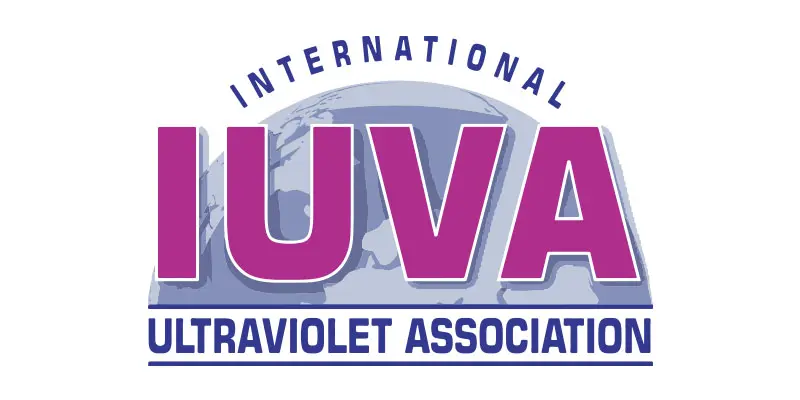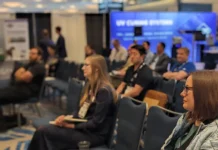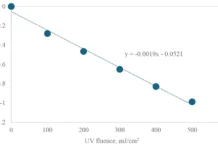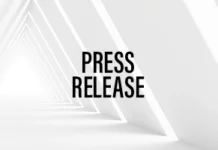UVSolutions
IUVA Develops New Task Force Model
To help better facilitate targeted and flexible IUVA member activities, the IUVA Board of Directors developed a task force model in lieu of the traditional committee structure. Any IUVA member may recommend a new task force; please visit iuva.org for details. Recent new task forces approved by the IUVA Board include:
- Development of a Standard Protocol for the Quantification of the Hydroxyl Radical Scavenging Demand in Water
- UV Output Measurements Under Water
- Understanding the Impacts of UV-C Exposure on Polymer Degradation
Please contact IUVA at [email protected] for more information on these groups or if you have an interest in starting a new initiative.
IUVA Welcomes New Board Members
In 2020, IUVA welcomed several new board members:
- Natalie Hull, The Ohio State University
- Ken Kershner, Aquionics Inc.
- Erin Mackey, Brown and Caldwell
- John Pacione, New York State Department of Health
- Brian Petri, Trojan Technologies
- Mark Stibich, Xenex Health Care Services
Congratulations to our new group leaders!
RadLaunch Update
 The IUVA RadLaunch initiative continues into its second year, in partnership with RadTech. RadLaunch recognizes new ideas in the development of UV technology.
The IUVA RadLaunch initiative continues into its second year, in partnership with RadTech. RadLaunch recognizes new ideas in the development of UV technology.
Sujay Swain, a high school student in Maryland, and one of last year’s award winners, sent a note updating his work on his project to develop clean water for underserved areas. Swain is developing a low-cost holistic water purification system. He has conducted detailed optical modeling of an improved reflector design that focuses a greater concentration of sunlight onto the water container throughout the day.
This new reflector design has the potential of rapidly and significantly increasing the water temperature, substantially improving the efficacy of the design. Additionally, he is studying the synergetic effect of UV-A radiation and heat, proving that with the new reflector arrangement, the amount of UV radiation needed to remove all biological contaminants from the water was reduced by three orders of magnitude, as verified by controlled experimentation with E. coli. These findings have helped to improve system performance, reducing the time needed to purify water.
Swain is now working with a local government in India to begin implementation of this system in rural areas. Once international travel is safe again, he plans on traveling to India to take these experiences into the field.
Updates from the IUVA YP Committee
Happy New Year, everyone. There are a lot of exciting things upcoming for 2021. The joint ICULTA, IUVA and Advanced UV for Life UV LED Technologies & Applications virtual conference is set for April 19-20, 2021. Following that, the IUVA World Congress will be held as a virtual conference on June 7-8, 2021. Calls for abstracts are open until March 12. Follow the YP Committee on Twitter, Facebook and LinkedIn for updates on initiatives and virtual events for the World Congress.
There is a new episode of the IUVA YP’s podcast, Wavelength. In this episode, the team interviews Dr. Erin Mackey from Brown and Caldwell and Dr. Jim Malley from the University of New Hampshire about the challenges and future of PFAS control in drinking water. The podcast can be found on the IUVA website.
YP Spotlights
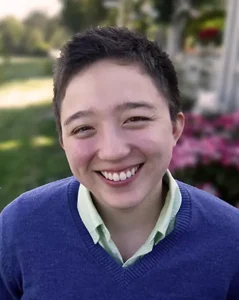
Alison (Ali) Su is a fifth-year bioengineering graduate student in Dr. Amy Herr’s Lab at UC Berkeley. At the beginning of the COVID-19 pandemic, Su joined N95decon.org, a volunteer consortium of scientists focused on evidence-based N95 respirator decontamination strategies, to study UV-C decontamination of N95 respirators for crisis capacity reuse. After recognizing an urgent need for robust, scalable and inexpensive UV-C dose measurement tools, Su teamed up with fellow lab members to develop workflows to quantify photochromic indicators as UV-C dosimeters for measurements on 3D N95 surfaces (Su and Grist et al, 2021). Using these workflows, Su is currently collaborating with fellow researchers to quantify how UV-C dose variation impacts SARS-CoV-2 inactivation on N95s.
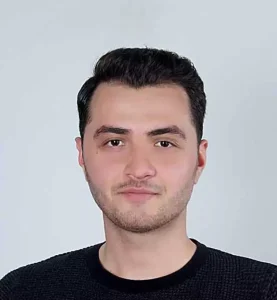
Fatih Atci is a lecturer at the Central Research Laboratory at the Karadeniz Technical University. He received his B.S. and M.Sc. in Mechanical Engineering from Karadeniz Technical University in 2016 and 2020, respectively. His M.Sc. research focused on the in-duct UV-C air disinfection systems. He also has published an article in a peer-reviewed journal about this topic. He is now working on improving the disinfection efficiency of in-duct UV LED systems.
The YP Committee exists to increase interest and involvement in the IUVA and UV industry among young professionals (YPs), defined as students and professionals less than 35 years old or with less than 5 years of experience post-graduation in UV-related industry, government or academia. If you have any questions or comments, or if you would like to get more involved, feel free to contact us via social media (@IUVAYP) or by email ([email protected]).

